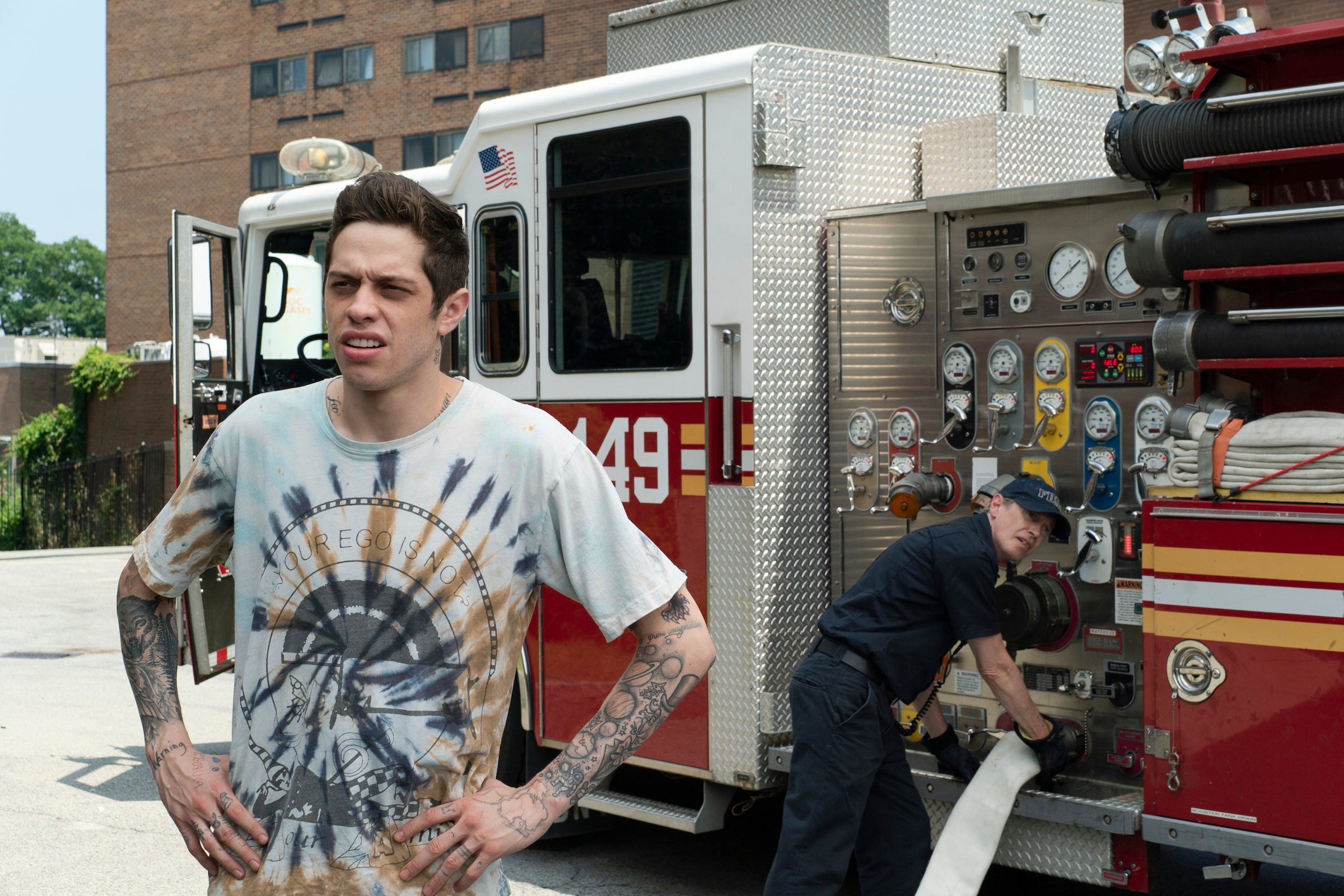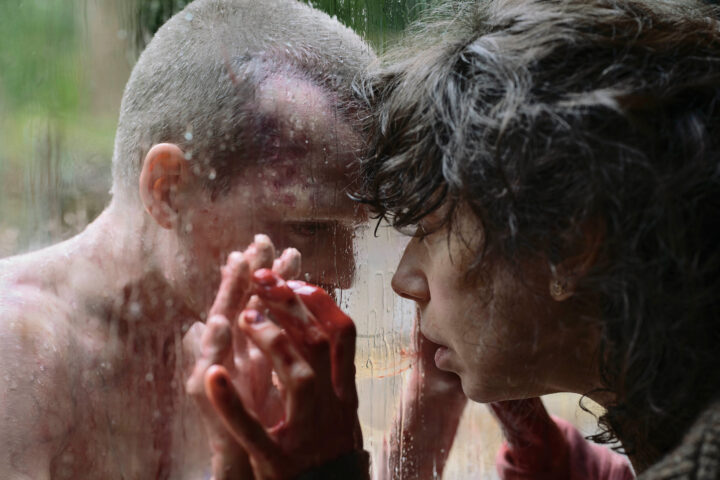I had little knowledge of Pete Davidson going into the new Judd Apatow picture The King of Staten Island. I’d never seen his comic stints on SNL and was more familiar with his paparazzi-fueled, pop culture romantic dalliances than anything related to either his apparent talent as a comic, charisma as a pop personality or ability to carry a movie. But seeing the young star approximate himself in Apatow’s big-hearted new movie, co-written by Davidson with significant autobiographical passages, made me an immediate admirer.
As a twenty-four-year-old New York wastrel going nowhere fast with a peer group of equally unmotivated layabouts, Davidson is pitch-perfect as a very particular type of almost angry young man: one who smokes pot all day, indulges in video games and casual sex, dreams of a future career as a tattoo artist and lives at home with his beleaguered ER-working mother (Marisa Tomei) on Staten Island. If you’ve known a young man like this – and I have – it’s an immediately recognizable form of willful complacency masking deep-seated life issues. There’s much truth in The King of Staten Island, but it takes awhile to peel back Scott Carlin’s (Davidson) defenses to what makes him tick, or hurt.
Here’s a guy stuck in time, or perhaps stuck in a time from the past. While the rest of his family has healed and moved forward from his firefighter father’s untimely death in a fiery blaze, he’s never quite dealt with it. Mom Margie (Tomei), a workaholic school nurse who moonlights in the local ER, is sending college-bound daughter Claire (Maude Apatow) off to university while riding Scott about his (lack of) future plans. With one out of the nest, will the other be soon? How could two kids turn out so different?
Scott’s days are filled with pot-smoking hangouts with the wrong crowd, and Apatow excels at the friendship dynamics between the at-times cretinous buddies (Apatow specializes in such bromantic squads) stunted in adolescence and substances. A regular sexual fling with childhood friend Kelsey (a terrific Bel Powley) is going nowhere – she has professional aspirations and longs for “life events” with Scott; he has no clue what she means.
Scott’s talents as a tattoo artist are also deeply in question, his work spotty and uninspired. Things turn when he lays impromptu ink on the impressionable nine-year-old son of local fireman Ray (comic Bill Burr), who appears on Margie’s doorstep demanding she pay for the removal. Burr, who carefully calibrates the build of his outer borough, good guy-tough guy character, is perfect chemistry match for Tomei. Their budding love affair means something to both, and selfish, repellent Scott makes it his mission to sabotage.
For awhile, Scott is a difficult character to warm to, a person who squanders goodwill, job opportunities and what little faith others have in him. But once the movie allows him to truly examine where he’s not going, breathe, escape his milieu and take baby steps toward responsibility (he gets a job in the local firehouse and becomes a reluctant babysitter), it becomes something so emotionally generous that you can’t help but root for him.
Picture takes place over a few months with an working-class authentic sense of place in Staten Island, its young denizens dreaming about either a way out or, in Kelsey’s case, a way to improve her home through a career in urban planning. As played with grit by Powley (Diary of a Teenage Girl) donning a perfect accent, Kelsey is an ingenious supporting character, smart and independent and going somewhere, and one that could have easily been played for broad laughs. Instead, Apatow believes in her, her vision for her future and what she sees in Scott, perhaps what we have been missing.
At 137 minutes, Apatow takes his time with the story, co-written by Davidson and Dave Sirus and based on events in Davidson’s life, including the death of his own father, a firefighter who perished in 9/11. Conceptually, that’s intriguing, and while Davidson’s Scott initially and unreasonably loathes his mother’s new suitor, it’s Ray who gently helps Scott make his hard-won personal breakthroughs about why and how to heal.
This may sound like a character study of a self-possessed Millennial who is, in fact, his own worst enemy. But that reductive interpretation would be missing the larger point about grief, its stages, and how some can move forward and some remain stuck in buried traumas they don’t even admit to themselves until the right person forces a reckoning. Davidson’s tremendously energetic, open and alive performance moves from cocky confidence to sensitive vulnerability.
Which is not to say the film isn’t richly funny, never more than during a botched pharmacy robbery and some key moments related to Scott’s misplaced dream of opening a tattoo parlor/restaurant on the shoulders of his decided lack of talent, evidenced by a very funny tattoo reveal late in the picture.
This is Apatow’s best film in a long time and one that doesn’t aim for the uproarious antics of, say, Knocked Up, but has more in common with the tenderness in some of Trainwreck’s best stretches. There’s a low-key, appealing, subtle emotional current that slowly rises in this film, and when one character finally says “I love you” to another at an unexpected moment, it feel earned, not forced.
Burr, Tomei, Powley and Davidson make quite an ensemble, and Apatow eschews big emotions in favor of allowing the actors to just play moderately scaled, human connections. The King of Staten Island is at once laugh-out-loud funny and by its inspired final shot – the best in a movie this year, perhaps – deeply poignant.
3 1/2 stars.



